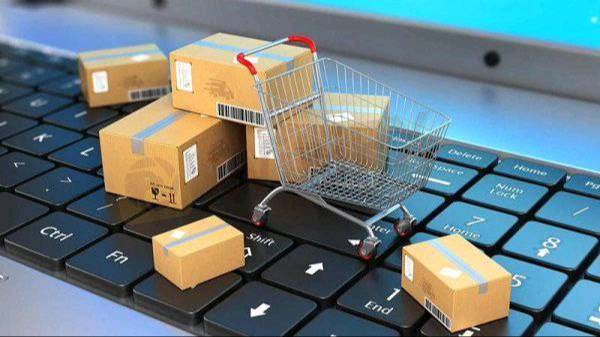
2025-01-18 00:01
الصناعةHow Global Platforms Address African Shipping .
#firstdealofthenewyearchewbacca
Key
Global platforms are addressing African shipping challenges by introducing innovative solutions in logistics and last-mile delivery. These efforts focus on overcoming infrastructural, regulatory, and operational obstacles unique to the continent. Here's how they are tackling these challenges:
Key Shipping Challenges in Africa
Infrastructure Gaps: Limited road networks, underdeveloped ports, and inadequate rail systems.
High Shipping Costs: Due to fragmented supply chains and inefficient processes.
Regulatory Barriers: Complex customs procedures and inconsistent regulations.
Last-Mile Delivery Issues: Poor addressing systems and difficulty accessing remote areas.
Innovations in Logistics
Technology Integration:
Real-Time Tracking: GPS and IoT-enabled devices allow real-time monitoring of shipments, improving transparency and efficiency.
Digital Freight Marketplaces: Platforms like Kobo360 and Lori Systems connect shippers with truckers to optimize cargo transportation.
Route Optimization:
AI and machine learning are used to identify the most efficient delivery routes, reducing transit times and fuel costs.
Blockchain for Customs:
Blockchain technology simplifies cross-border trade by streamlining customs documentation and reducing delays.
Localized Warehousing:
Companies like Amazon and DHL are investing in local fulfillment centers to shorten delivery times and reduce logistics costs.
Last-Mile Delivery Innovations
Use of Drones:
Companies like Zipline deliver medical supplies to remote areas using drones, bypassing road infrastructure challenges.
Crowdsourced Delivery:
Platforms like Glovo and Jumia leverage local couriers for faster and more cost-effective last-mile delivery.
Mobile Addressing Systems:
Solutions like what3words provide precise geolocation-based addresses for areas lacking formal addressing systems.
E-Commerce-Specific Solutions:
Platforms like Jumia and Konga use local distribution networks and partnerships to enhance delivery reliability.
Micro-Hubs:
Establishing micro-fulfillment centers in urban and rural areas to act as pickup or redistribution points for deliveries.
Global Collaboration and Investments
Partnerships:
Collaborations between global and local players (e.g., DHL with African logistics startups) to leverage regional expertise.
Infrastructure Projects:
Investment in ports, roads, and railways by global organizations (e.g., China's Belt and Road Initiative in Africa).
Regulatory Support:
Engaging with African governments to harmonize trade policies and improve customs processes.
Impact of Innovations
Lower Costs: Optimized routes and efficient processes reduce shipping expenses.
Faster Deliveries: Technology and localized solutions minimize transit times.
Expanded Reach: Drones and micro-hubs enable deliveries in remote and underserved regions.
Job Creation: Crowdsourcing and local partnerships provide economic opportunities.
By leveraging technology, partnerships, and innovative delivery models, global platforms are transforming logistics and last-mile delivery in Africa, paving the way for improved trade and economic growth.
إعجاب 0

Faison Boniphace
Trader
مناقشة حية
الصناعة
NFP updates URDU
الصناعة
دوج كوين
الصناعة
دوجكوين
الصناعة
صعود الذهب
الصناعة
لقاحات كورونا
الصناعة
السيارات
فئة المنتدى

منصة

المعرض

الوكيل

التوظيف

استيراتيجية التداول التلقائي

الصناعة

السوق

المؤشر
How Global Platforms Address African Shipping .
 تنزانيا | 2025-01-18 00:01
تنزانيا | 2025-01-18 00:01#firstdealofthenewyearchewbacca
Key
Global platforms are addressing African shipping challenges by introducing innovative solutions in logistics and last-mile delivery. These efforts focus on overcoming infrastructural, regulatory, and operational obstacles unique to the continent. Here's how they are tackling these challenges:
Key Shipping Challenges in Africa
Infrastructure Gaps: Limited road networks, underdeveloped ports, and inadequate rail systems.
High Shipping Costs: Due to fragmented supply chains and inefficient processes.
Regulatory Barriers: Complex customs procedures and inconsistent regulations.
Last-Mile Delivery Issues: Poor addressing systems and difficulty accessing remote areas.
Innovations in Logistics
Technology Integration:
Real-Time Tracking: GPS and IoT-enabled devices allow real-time monitoring of shipments, improving transparency and efficiency.
Digital Freight Marketplaces: Platforms like Kobo360 and Lori Systems connect shippers with truckers to optimize cargo transportation.
Route Optimization:
AI and machine learning are used to identify the most efficient delivery routes, reducing transit times and fuel costs.
Blockchain for Customs:
Blockchain technology simplifies cross-border trade by streamlining customs documentation and reducing delays.
Localized Warehousing:
Companies like Amazon and DHL are investing in local fulfillment centers to shorten delivery times and reduce logistics costs.
Last-Mile Delivery Innovations
Use of Drones:
Companies like Zipline deliver medical supplies to remote areas using drones, bypassing road infrastructure challenges.
Crowdsourced Delivery:
Platforms like Glovo and Jumia leverage local couriers for faster and more cost-effective last-mile delivery.
Mobile Addressing Systems:
Solutions like what3words provide precise geolocation-based addresses for areas lacking formal addressing systems.
E-Commerce-Specific Solutions:
Platforms like Jumia and Konga use local distribution networks and partnerships to enhance delivery reliability.
Micro-Hubs:
Establishing micro-fulfillment centers in urban and rural areas to act as pickup or redistribution points for deliveries.
Global Collaboration and Investments
Partnerships:
Collaborations between global and local players (e.g., DHL with African logistics startups) to leverage regional expertise.
Infrastructure Projects:
Investment in ports, roads, and railways by global organizations (e.g., China's Belt and Road Initiative in Africa).
Regulatory Support:
Engaging with African governments to harmonize trade policies and improve customs processes.
Impact of Innovations
Lower Costs: Optimized routes and efficient processes reduce shipping expenses.
Faster Deliveries: Technology and localized solutions minimize transit times.
Expanded Reach: Drones and micro-hubs enable deliveries in remote and underserved regions.
Job Creation: Crowdsourcing and local partnerships provide economic opportunities.
By leveraging technology, partnerships, and innovative delivery models, global platforms are transforming logistics and last-mile delivery in Africa, paving the way for improved trade and economic growth.
إعجاب 0
أريد أن اترك تعليق
تقديم
0تعليقات

لا توجد تعليقات حتى الآن ، كن أول شخص يعلق

تقديم
لا توجد تعليقات حتى الآن ، كن أول شخص يعلق